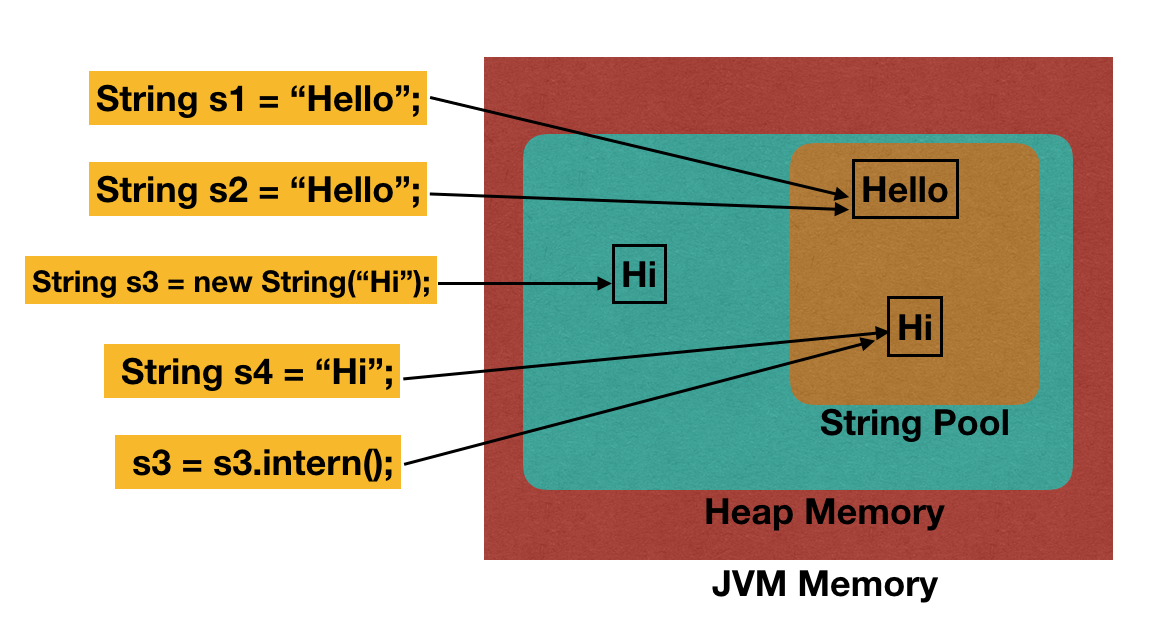Why Are Strings Immutable in Java? Necessary Expertise for Designers
Why Are Strings Immutable in Java? Necessary Expertise for Designers
Blog Article
Unalterable Strings: A Secret Element in Ensuring Information Consistency and Dependability
In the world of information management, the value of unalterable strings can not be overstated. These unchanging sequences of personalities play a critical role in upholding the stability and precision of info within systems. By preserving a state of immutability, information consistency is guaranteed, promoting a foundation of dependability whereupon crucial processes rely. The idea of immutable strings goes beyond mere formality; it is a linchpin in the complex web of information governance. As we check out the benefits, execution techniques, and functional applications of unalterable strings, a more clear image arises of their essential nature in guarding the electronic landscape.
The Idea of Immutable Strings
Unalterable strings, a basic principle in programs, describe strings that can not be changed as soon as they are created. Essentially, once a string value is designated, any type of operation that shows up to customize the string really produces a brand-new string. This immutability ensures information uniformity and reliability in applications, as it prevents unforeseen changes to the initial data.
Benefits in Data Uniformity

Data uniformity is crucial in different elements of software growth, including data source administration, multi-threaded environments, and distributed systems (Why are strings immutable in Java?). Immutable strings add considerably to attaining this consistency by preventing information corruption as a result of simultaneous gain access to. In circumstances where numerous processes or threads connect with the same information all at once, immutable strings act as a guard against race conditions and synchronization issues
Additionally, the immutability of strings simplifies debugging and testing procedures. With immutable strings, developers can rely on that when a string is set, it will continue to be unmodified, making it easier to map the resource of mistakes and making sure that test cases produce regular results. This reliability in data managing ultimately brings about much more secure and durable applications.

Applying Unalterable Strings
Making certain the immutability of strings requires a thoughtful strategy to their application in software growth. One key method is to develop string classes in such a way that avoids modifications when a string things is created. By making strings unalterable, developers can enhance information consistency and integrity in their applications.
To execute immutable strings efficiently, developers must prefer developing brand-new string things as opposed to customizing existing ones. This method ensures that as soon as a string is appointed a value, it can not be changed. Additionally, any operation that appears to customize the string needs to produce a brand-new string with the desired adjustments instead of altering the initial.
Furthermore, making use of immutable strings can streamline concurrency administration in multi-threaded settings. Since immutable strings can not be changed after production, they can be safely shared among several strings without the threat of information corruption.
Role in Reliability Assurance
In software application development, the utilization of immutable strings plays an essential function in guaranteeing the dependability of information procedures. Immutable strings, as soon as developed, can not be modified, ensuring that the data they stand for continues to be regular throughout the application's execution. This immutability property provides a level of assurance that the information being processed will not be unintentionally altered, resulting in unanticipated end results or mistakes in the system.
By including immutable strings right into software program layout, programmers can boost the reliability of their applications by reducing the risks connected with mutable data - Why are strings immutable in Java?. Unalterable strings aid in protecting against data corruption or unexpected adjustments, which can be particularly vital when managing delicate info or when data integrity is vital
Moreover, using immutable strings streamlines concurrent handling, as several threads can securely gain access to and share string data website link without the threat of one thread modifying the material while another is reading it. This aspect adds dramatically to the general dependability of the software application system, ensuring predictable and regular habits in data managing operations.
Applications and System Combination
The seamless assimilation of unalterable strings into numerous applications and systems is critical for making sure robust data uniformity and dependability across varied technological settings - Why are strings immutable in Java?. Unalterable strings play an important role in enhancing the integrity of information exchanges and communications within complicated software application ecological communities. By integrating unalterable strings into applications, programmers can reduce the threats connected with information tampering, unapproved alterations, and unintended modifications, therefore fortifying the general protection pose of the system
In the context of system integration, unalterable strings work as a fundamental component for establishing safe communication networks and promoting seamless data transfers in between different components. Their unalterable nature guarantees that information sent between systems remains the same and verifiable, decreasing the probability of incongruities or mistakes that could jeopardize the stability of the entire system. In addition, unalterable strings can boost interoperability in between inconsonant systems by offering a standardized style for information representation, making it possible for extra check my reference reliable data handling and exchange methods throughout interconnected systems. By embracing unalterable strings in applications and system assimilation procedures, companies can fortify their information framework and promote the integrity and consistency of their info possessions.
Conclusion
Finally, immutable strings play a crucial duty in preserving data uniformity and integrity in different applications and system combinations. By ensuring that strings can not be altered once developed, the integrity of information is maintained, minimizing the risk of mistakes and variances. Applying immutable strings can considerably improve the dependability of systems, ultimately bring about more trustworthy and accurate information web handling.

Report this page